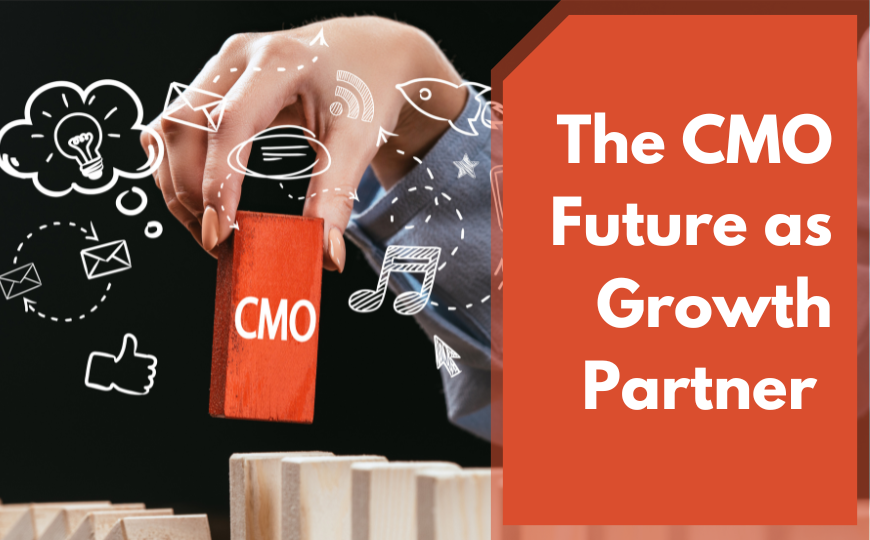In recent decades, the corporate world has witnessed a clear shift of power toward marketing. The evolution has made marketers assume many more responsibilities, such as CEO or co-founders in start-up companies.
With the growth of digital marketing, the CMO has become one of the most critical roles in every organization. No longer solely responsible for managing the brands and marketing strategy, today’s CMO leads the entire organization to develop and implement a growth plan to build a sustainable competitive advantage.
Whether you’re a newbie or an old pro, it pays to know which CMO roles are out there and what they do. If you are in the market for a job, it can help you understand what employers are looking for and whether your background and experience match their needs. If you’re currently employed, this information can help you to anticipate the future of your career.
What is a CMO?
A Chief Marketing Officer (CMO) is an executive-level position responsible for establishing and executing a company’s marketing strategy. The CMO oversees all aspects of marketing, including each type of function within this specialty.
One thing that sets the CMO apart from other senior marketers within a company is the scope of their control over marketing-related functions. In some organizations, all marketing is centralized under one umbrella group; in others, each division or product line has its marketing department but falls under the purview of the CMO. Some companies have their corporate officers hold this role as well.
CMO’s also oversees public relations (PR) efforts and advertising campaigns and plans to build strategies around them. They also develop pricing plans for goods or services offered by their organization.
A CMO is responsible for a company’s marketing strategies and tactics, but the nature of the job can vary from company to company. CMO’s may oversee all marketing-related tasks, such as public relations and advertising, or be in charge of one specific area, such as branding and advertising. The type of CMO role your company needs depends on its size, goals, and structure.
Tasks
Overall, CMOs are responsible for all marketing-related tasks within their organization. These include:
– Marketing Strategy – Formulating a plan to help the business achieve its target market.
– Branding – Defining an overall brand strategy and managing the development of a brand identity.
– Advertising – Managing all aspects of advertising, including online ads and TV commercials.
– Public Relations – Managing media relations and communicating with consumer interest groups.
– Market Research – Conducting market research to gain insight into consumer behaviors.
– Sales Management – Supporting sales teams by providing insights into consumers’ purchasing behavior and providing materials that will enhance sales pitches.
The CMO will be expected to manage three critical areas of focus:
Growth Marketing: The CMO will have to be at the forefront of driving business growth by identifying key segments of customers, developing strategies to acquire new customers, and identifying opportunities to cross-sell and up-sell existing customers.
Customer Experience: The CMO will ensure that each customer experience is relevant, individualized, and rewarding. With data being collected from every touchpoint with a customer, the CMO must ensure that all customer data is being collected and analyzed. To do this effectively requires a strategic approach to developing technology platforms that can deliver on this promise.
Innovation Management: The future success of an organization will depend on how well it can leverage technologies like AI and machine learning for innovation. These technologies can help companies uncover new growth opportunities and help them identify cost savings opportunities.
The CMO as Growth Partner in the new business eco-system
The CMO has become a growth partner to the CEO. The CMO has taken a pivotal role in this new business ecosystem. They are responsible for building and deploying digital marketing strategies that align with customer needs and deliver optimum results.
Towards this, they have to constantly evolve their mindset and business acumen to align with the changing demands of customers. They need to adopt an end-to-end approach to fine-tune their digital marketing strategy and understand customers’ needs holistically.
The CMO is accountable for driving profitable growth and enhancing ROI on the company’s overall marketing initiatives. They cannot lose sight of the fact that they are integral to the overarching business strategy, contributing towards shareholder value creation. They must focus on developing new revenue streams, improving customer acquisition and retention through better communication, engagement & delight, being innovative, and embracing change by adopting more recent technologies like AI & ML.
The CMO’s Role in the Future of Marketing
The CMO has a lot to do with the future of marketing. The more that marketing is shifting to digital, the more the CMO has to work with technology and social media. The CMO will be working with clients to make sure that their brand is heard and seen on every platform possible. The CMO will also analyze data, determine what’s best for the brand, and take feedback from clients and consumers.
A lot of what they do will be based on data analytics. Data analytics includes the analysis of past data to predict future trends. This will help businesses determine why their strategies have worked or why they haven’t worked. They can then apply this knowledge to new approaches to increase revenue and boost productivity.
The CMO will also have an essential role in ensuring that your company is visible across all platforms. Social media plays a vital role in marketing because it allows companies to connect with customers they might not otherwise reach with traditional marketing tactics like print ads or TV commercials.
The changing role of the CMO
The marketing function is going through a transitional phase. The traditional view of marketing is being replaced with a more integrated approach. This can be attributed to the growing importance of technology in consumers’ lives, who use technology to find information and evaluate products before they are even aware of them.
Tasks performed by different organization members, such as marketing product planning, market research, and advertising, are now being integrated into a single department. This Department of Marketing (DoM) has several different roles:
Marketing Strategist: The strategist’s job is to develop and execute a business’s overall strategic marketing plan, including everything from media planning to customer service.
Marketing Manager: This role is responsible for managing the DoM’s other members, including product managers and analysts. They also manage resources and coordinate efforts with other departments within the company.
Marketing Communications Director: This role oversees all aspects of a company’s communication with various audiences. It includes advertising, public relations, sales promotions, and other communications media such as email and social networks.
Product Manager: Responsible for overseeing all aspects of a company’s product or service offerings; this role manages pricing, packaging, and distribution channels for each offering.
Roles of a Chief Marketing Officer (CMO)
The CMO has a lot of different responsibilities, but there are three main areas where they will spend most of their time:
- Business Development – The CMO is responsible for ensuring the company’s marketing efforts are always aligned with its goals. This means that they need to prepare an annual plan with sales, product management, and other departments and ensure that everyone is working towards the same vision.
- Branding – Creating powerful brand identities is one of the best ways to establish a company as a significant player in its industry. The CMO leads this effort, but it’s usually not just about creating a logo and a tagline — it also often involves establishing solid relationships with important partners who can help promote the brand name, such as distributors and vendors.
- Customer Engagement – All companies have in common is their customers. It’s the CMO’s job to devise marketing strategies that will keep those customers happy so that they’ll stick around for years to come.
Conclusion
The role of the CMO is still very much evolving in today’s digital age. The CMO needs to understand every channel available to promote their product or service effectively. In addition, the CMO has become a full-fledged strategic partner within the company, providing strategies for growth with data and metrics substantiating those strategies. The days of old where a new CMO was hired solely for their ability to communicate the product are gone. A modern CMO has numerous responsibilities, from internal relationships, market research, social media, analytics, and strategy to growing the business.
Some reports have claimed that marketing’s role in the C-suite will continue to grow, while others predict it will remain stable with the tactical and strategic division of labor. What seems most certain is that marketing’s leadership is evolving and changing to meet the needs of the emerging business world.






